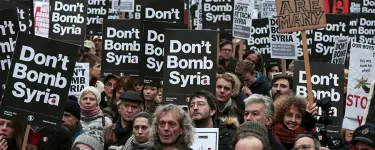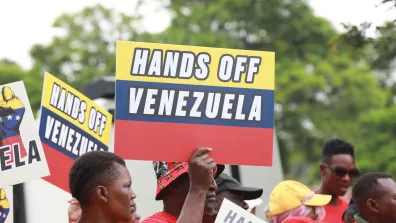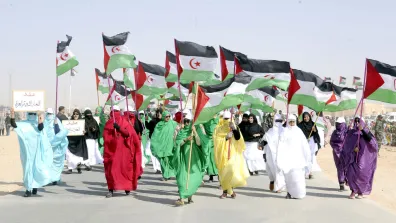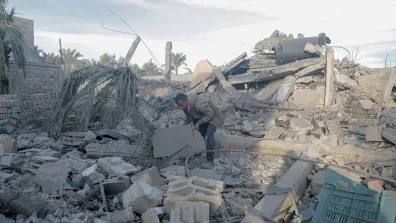Don't Bomb Syria

There is no denying the long-term humanitarian crisis that has been created in Syria and Iraq as a result of the West’s intervention in the region, nor the horrors now faced by the millions of civilians living under Islamic State rule. Further aerial bombardment offers no solution to this crisis, but intensifying the violence will surely exacerbate its horrors. The Conservative-led Foreign Affairs Committee voted last night against the bombing, saying that the case for air strikes had not been made. MPs must step back from committing the UK to yet another war in the Middle East.
The entity known as Islamic State is a direct product not just of the US and UK invasion of Iraq in 2003, but more specifically of the allied forces’ decision to foment sectarian violence as a strategic response to the resistance they faced. Fighters loyal to al-Qaeda merged with other Sunni insurgents to form Islamic State in Iraq, challenging US and UK forces in the field as well as extending the fight to Shi’a civilians. Under the leadership of Abu Bakr al-Baghdadi, senior figures from the former Ba’athist military of Saddam Hussein were integrated into the group – a process aided by the fact that they had been incarcerated by occupation forces in the same Iraqi prison. Once Syria in turn descended into civil war, al-Baghdadi established a guerrilla presence there too, and from this subsequently created the Islamic State of Iraq and Syria (ISIS). In June 2014, al-Baghdadi renamed the entity Islamic State and proclaimed it to be the caliphate, leading many Islamist groups across the world to declare their allegiance to him.
As early as 2005, the CIA warned there would be a ‘blowback’ from the occupation of Iraq far greater than the terror attacks that had followed the West’s earlier intervention in Afghanistan. In contrast to al-Qaeda, which was characterised by a technology-averse central command, Islamic State operates a sophisticated network of digital communications which spreads its message worldwide. Islamic State has thus been able to build its appeal internationally by portraying itself as the strongest resistance movement to repeated waves of Western aggression against the Muslim world.
The strategic decisions made by the US and UK during the occupation of Iraq created Islamic State, and that history cannot be undone. There is now consensus among military and political analysts that bombing will not stop Islamic State from operating; if anything, renewed Western attacks on yet another Muslim country serve to recruit even more people to its cause. Bombing is acknowledged as an act of desperation in the face of the monster we have created, while David Cameron's claim that there are 70,000 troops waiting to overthrow Islamic State has been dismissed as a 'deadly fantasy'.
The primary victims of any bombing campaign will, of course, be the innocent families that have nowhere to hide. No one is fooled by talk of high-tech ‘precision bombing’ reducing civilian casualties to a minimum, a propaganda claim that has been proved to be nonsense ever since it was trialled during the First Gulf War of 1991. The truth is that many more non-combatants will die, and the ‘lucky’ ones will be condemned to risk their lives all over again in the desperate flight of refugees.
There are no simple answers to the nightmare that has been created for the peoples of Iraq, Syria and the surrounding region, all of whom face a reality unimaginably more horrific than the populations of Western capitals now at risk of terror attacks. Many analysts have spoken of the need to cut off the channels of supply that sustain the jihadist forces, including the support provided by countries such as Saudi Arabia, Qatar and Turkey, which have actively encouraged the war in Syria in pursuit of their own interests.
Whatever the long-term solution to the disaster we have created in Iraq and Syria, further aerial bombardment will accomplish nothing. MPs must vote against it.


